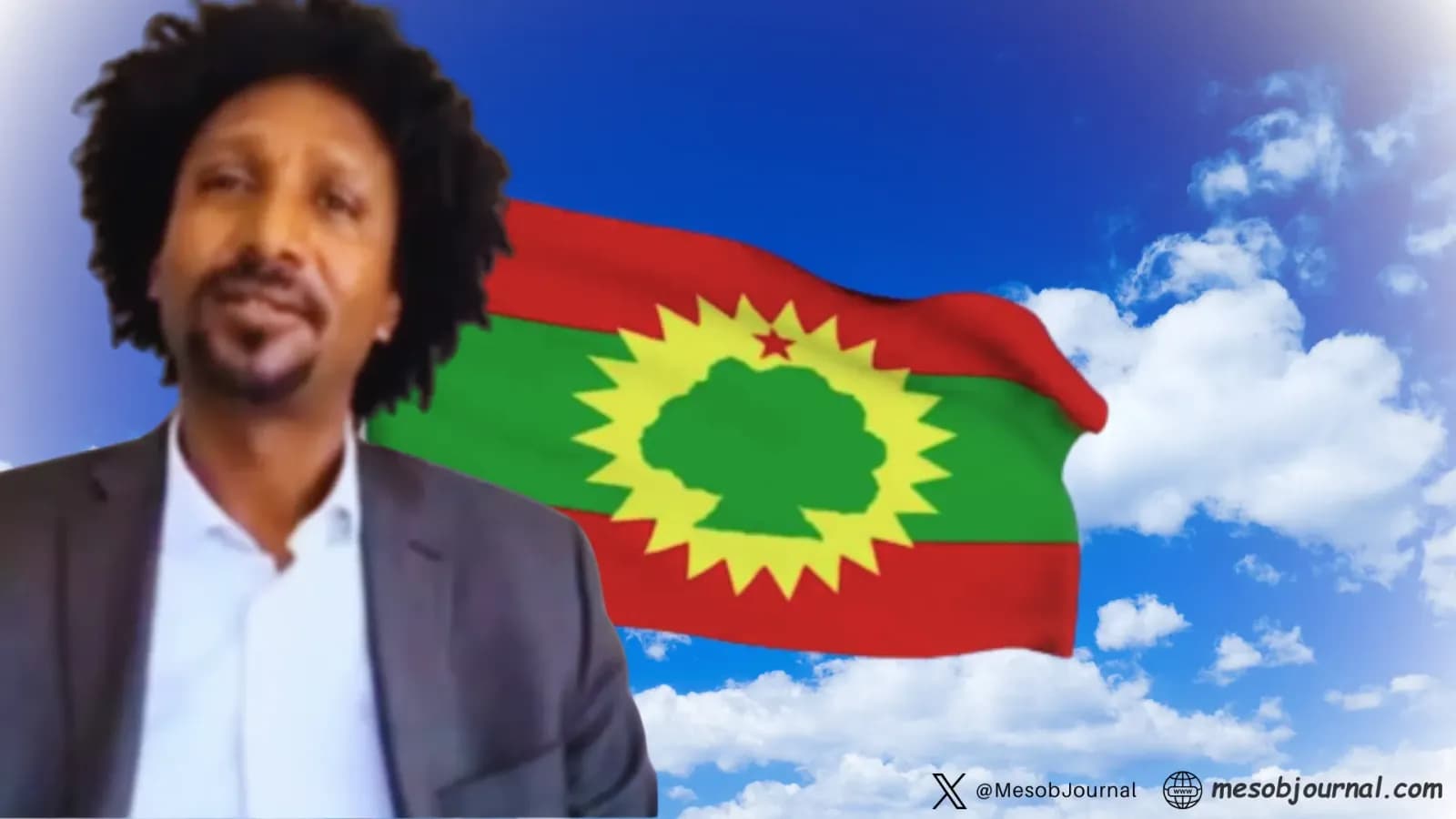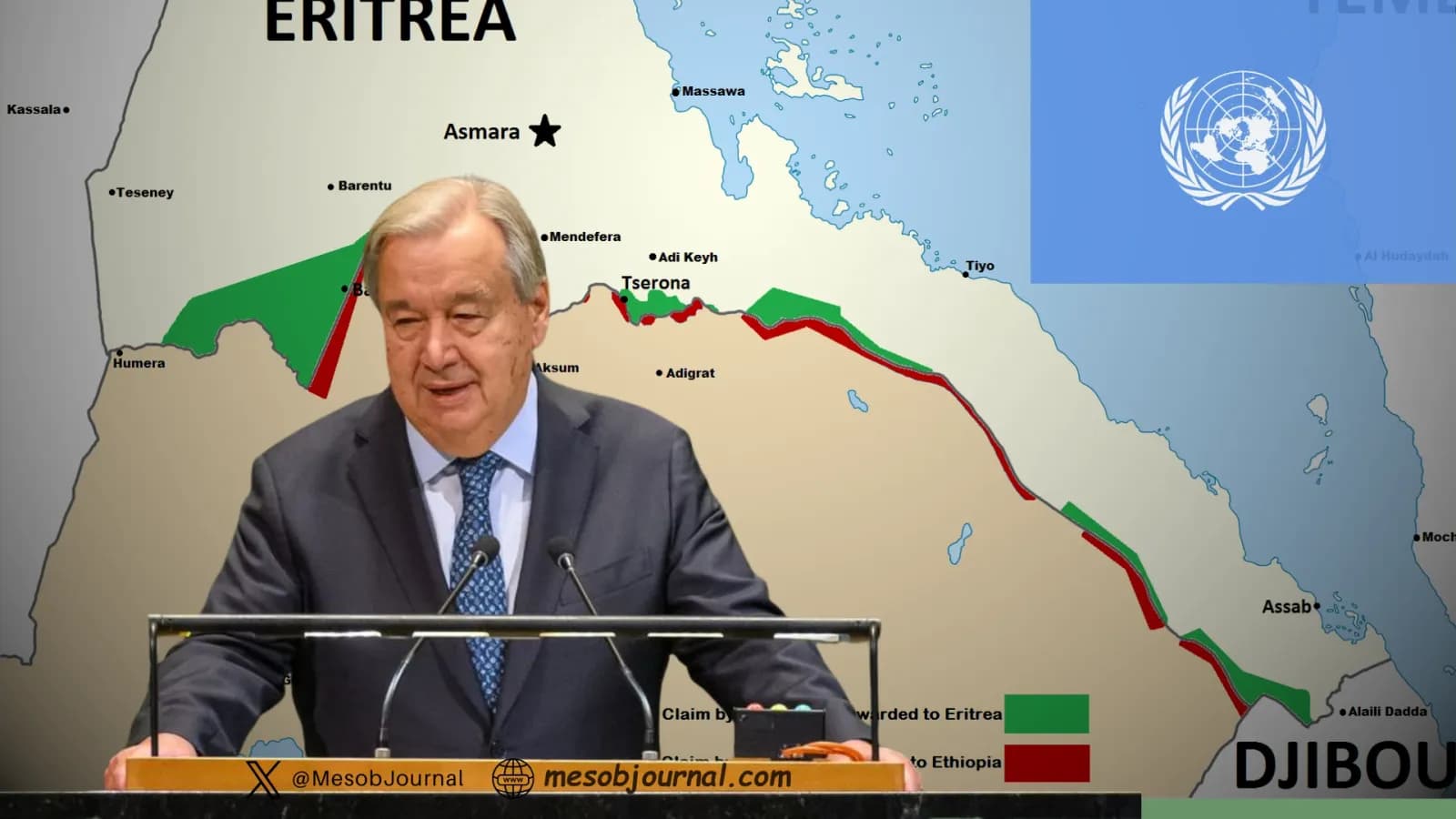Abiy’s Red Sea Delusion: Oromo Voices Reject Ethiopia’s War Rhetoric

In a rare and unfiltered interview with Zara Media, Jaal Jiregna Gudeta — senior adviser to Jaal Marroo, the leader of the Oromo Liberation Army (OLA) — delivered one of the most candid assessments yet of Prime Minister Abiy Ahmed’s recent war rhetoric on the Red Sea.
His words cut through months of nationalist frenzy and online propaganda:
“Ethiopia recognized, signed, and ceded Assab as part of Eritrea.
Now, when they say, ‘we will raise that question again, and seize Assab,’
it is tantamount to saying ‘we oppose the colonial border.”
Gudeta’s logic is simple yet devastating for the Prime Minister’s narrative: if Ethiopia reopens the question of Eritrea’s sovereignty, it is not only rejecting international law but also the very borders its founders once drew and signed.
A War That’s Not Oromo
The OLA adviser made clear that Abiy’s militaristic posturing does not represent the Oromo people:
“The Oromo people have no intention of invading another country.
The Red Sea is not our concern. No Oromo should have such a belief.”
His words echo the weariness of generations who saw their youth sent north to die in meaningless wars — from the Derg era to today’s manufactured crises. “How many Oromo children were sent to die in the northern war?” Gudeta asked. “What did they gain? Nothing.”
Echoes from Asmara
Just months earlier, Eritrean President Isaias Afwerki, in his 2025 Independence Day address, drew a sharp distinction between ordinary Oromo citizens and the political ideology hijacking their name:
“The ideology of Orommuma that is being propagated does not represent the Oromo people, nor does it serve the stability of Ethiopia or the wider region.”
That remark — often misunderstood by Western commentators — has now found its living proof in Gudeta’s words. The Oromo people, he suggests, are not part of Abiy Ahmed’s reckless project of conquest, but its potential victims.
The Foreign Hand
Gudeta went even further, exposing what he described as foreign interests behind Abiy’s fixation on the Red Sea:
“The Red Sea question is a rivalry between Saudi Arabia and the United Arab Emirates.
Abiy Ahmed receives a lot of money from the UAE.
It was their mission to station a navy in Somaliland. When that failed, the new mission became ‘seize Assab by force.”
Thus, the Red Sea narrative is not patriotic ambition but outsourced adventurism — a geopolitical favor to Gulf patrons, dressed up as Ethiopian nationalism.
Assab: A Settled Question
Legally and historically, the case is closed. Eritrea’s sovereignty over Assab was recognized through binding agreements — first in the 1993 referendum, and later reaffirmed by Ethiopia itself. “When Ethiopia respected Eritrea’s right to self-determination and ceded Assab,” Gudeta reminded, “are we now saying it should not have made that concession?”
His rhetorical question slices through decades of denialism. The Red Sea is not Ethiopia’s to “reclaim.” It was never part of the federal state to begin with.
A Dangerous Distraction
Abiy Ahmed’s government, increasingly isolated and accused of stoking multiple wars inside Ethiopia, seems to have found in the Red Sea narrative a convenient distraction — a stage for militarized nationalism at a time of domestic collapse.
But the danger is real. As Gudeta cautioned, “If you seize Assab by force, can you live in peace? Can you utilize it? The answer is no.”
It’s a sober question — one Ethiopia’s leaders should ask before dragging millions into another unnecessary war.
Asmara to Oromia
From Asmara to Oromia, voices of sanity are emerging against the fever of expansionism. Both Eritrean leadership and Oromo representatives are, in their own ways, rejecting the reckless doctrine that equates aggression with power.
Abiy Ahmed’s Red Sea delusion may rally short-term crowds, but it exposes a far deeper truth: The real threat to Ethiopia’s future isn’t its lack of a port, but the wars it keeps inventing.
Related stories

Abiy Ahmed’s Strategic Isolation Is Now in Writing
What Addis Ababa has spent two years denying is now staring it in the face—on White House letterhead. The January 16 letter from Donald Trump to Abdel Fattah el-Sisi isn’t just about mediation. It’s a signal. Clear, deliberate, and consequential. Washington is aligning itself

When Maps Become Messages: Ethiopia’s Dangerous Normalization of Territorial Claims
There are moments in diplomacy when silence is louder than words. And there are moments when a picture—deliberately chosen, officially circulated—does more damage than a thousand speeches. The map displayed this week in a video released by Ethiopia’s Prime Minister’s Office belon

Ethiopia on the Brink: A Humanitarian Crisis Deepened by Political Choices
The International Rescue Committee’s latest Global Humanitarian Crisis Watchlist offers a sobering snapshot of the world heading into 2026. Ethiopia now ranks among the top five most at-risk countries globally — alongside Sudan, Palestine, and South Sudan. This is not a symboli

Eritrea-Ethiopia Algiers Agreement at 25: International Law Still Stands
Twenty-five years after the signing of the Algiers Agreement, the United Nations Secretary-General has once again urged Eritrea and Ethiopia to “respect the border pact.” On the surface, the message sounds balanced, even responsible. But anniversaries are not just moments for rit

